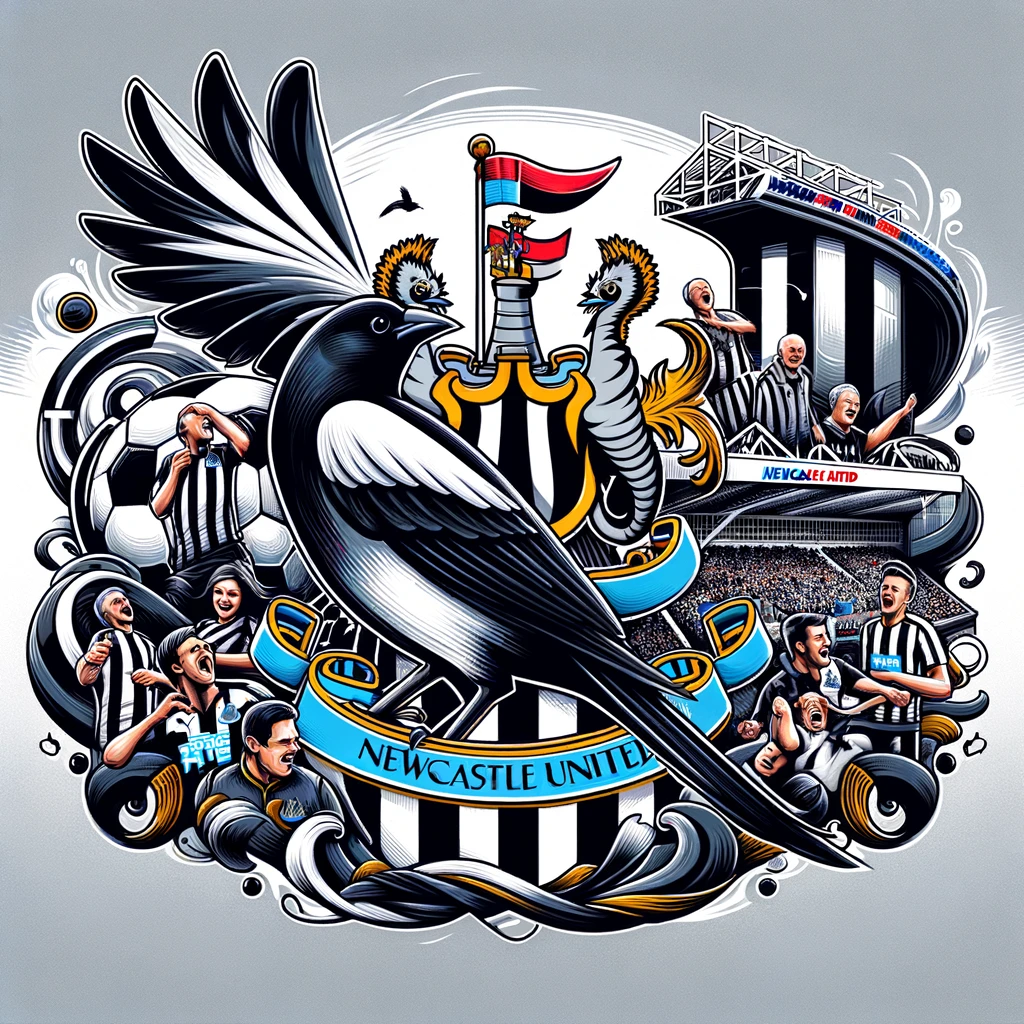Introduction
Newcastle United Football Club, affectionately known as the Magpies to their fans, is a professional football club based in Newcastle upon Tyne, England. Founded in 1892, the club has a rich history and a passionate fan base. Known for its iconic black and white striped kits, Newcastle United has become a staple in English football, celebrated for its culture and enduring spirit.
Early History and Formation
The club was formed by the merger of two local teams, Newcastle East End and Newcastle West End. They played their first match in 1892 and have called St. James’ Park their home ever since. The early 20th century saw the club’s first successes, winning several domestic league titles and establishing themselves as a force in English football.
The Glory Years
Newcastle United enjoyed a golden era in the 1950s, winning three FA Cups in five years (1951, 1952, and 1955). This period is fondly remembered by fans as the pinnacle of the club’s achievements. Players like Jackie Milburn and Bobby Mitchell became club legends, revered for their contributions to the team’s success.
League and Cup Performances
While the club has not won a major trophy since 1969, when they triumphed in the Inter-Cities Fairs Cup, Newcastle United has remained a prominent name in English football. The club has experienced fluctuating fortunes in the league, including relegations and promotions, but has consistently maintained a strong presence.
Fan Base and Culture
Newcastle United’s supporters are known for their unwavering loyalty and passionate support. The club’s culture is deeply intertwined with the city’s identity, making match days at St. James’ Park a vibrant and lively event. The supporters’ chants and the electric atmosphere at the stadium are integral to the club’s identity.
Recent Developments
In recent years, Newcastle United has experienced managerial changes and challenges, both on and off the field. The club’s ownership and management have been subjects of discussion among fans and in the media, with calls for changes to propel the club back to the higher echelons of English football.
Community Involvement
Beyond the pitch, Newcastle United is committed to community engagement and development. The club actively participates in community programs and charity initiatives, fostering a strong bond with the local community.
Conclusion
Newcastle United F.C. stands as a symbol of resilience and passion in English football. While the club continues to strive for success on the pitch, it is the rich history, the fervent support of its fans, and the deep connection to its community that truly define the essence of the Magpies.
Newcastle FC Football Club NUFC Stats and Facts
- Foundation: Newcastle United was founded in 1892, following the merger of Newcastle East End and Newcastle West End.
- League Titles: The club has won the First Division (now the Premier League) four times: in 1905, 1907, 1909, and 1927.
- FA Cup Victories: Newcastle United has won the FA Cup six times, with their victories coming in 1910, 1924, 1932, 1951, 1952, and 1955.
- European Success: The club won the Inter-Cities Fairs Cup, now known as the UEFA Europa League, in 1969.
- Stadium: St. James’ Park has been the home of Newcastle United since the club’s inception and has a capacity of over 52,000, making it one of the largest stadiums in England.
- Relegation and Promotion: Newcastle United has experienced relegations from and promotions to the Premier League. Their most recent promotion came in 2017, after winning the Championship.
- Record Signings: The club’s record transfer signing is Joelinton, who joined in 2019 for a reported fee of around £40 million.
- Top Scorers: Alan Shearer, the Premier League’s all-time top scorer, scored a record 206 goals for Newcastle United between 1996 and 2006.
- Fan Base: Known for their passionate support, Newcastle United’s fans, often called the “Toon Army,” are a significant presence in English football.
- Ownership: The club has undergone changes in ownership, with Mike Ashley being a prominent figure in recent history. His tenure saw mixed reactions from fans, particularly regarding the club’s direction and investment in players.

